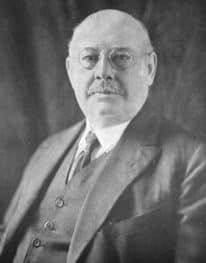NEWS
Davidson Without a College?
 It’s hard to imagine Davidson without Davidson College, but there were at least two discussions about moving the college to Charlotte. Although the first effort, discussed in 1888, has been described by historian Mary Beaty as an idea without a foundation, both state newspapers and college publications commented on it. According to the April 5 edition of Salisbury’s Carolina Watchman, Col. William Johnson of Charlotte had recently suggested to the Charlotte Chronicle that the college be relocated and proposed that the city give the college $50,000 to facilitate the move.
It’s hard to imagine Davidson without Davidson College, but there were at least two discussions about moving the college to Charlotte. Although the first effort, discussed in 1888, has been described by historian Mary Beaty as an idea without a foundation, both state newspapers and college publications commented on it. According to the April 5 edition of Salisbury’s Carolina Watchman, Col. William Johnson of Charlotte had recently suggested to the Charlotte Chronicle that the college be relocated and proposed that the city give the college $50,000 to facilitate the move.
A later Watchman article advised against the move, saying that Charlotte had a chance at a college with Liberty Hall, which, after it went into decay, was moved by the state legislature to Salisbury, becoming Salisbury Academy. The Watchman opined: “Let Davidson College stay where it is, for remove it to Charlotte and then — it may be necessary to remove it again to some other place.” Articles about the proposed plan also appeared in the Western Sentinel (Charlotte), the Gastonia Gazette, and Raleigh’s State Chronicle. According to an April 20 article in the State Chronicle, “It is an open secret … that some of the most loyal and enthusiastic friends of Davidson College are discussing privately the feasibility and the advantages of a removal of this splendid State educational institution to Charlotte.”
There was also some discussion on the Davidson campus. An article in the May 1888 edition of the Davidson Monthly mentioned the possibility, commenting “we have often heard this offer discussed by the students, and they are, as a rule, very much in favor of the removal…In the ante-bellum days…the culture, education and refinement of the South belonged to the large planters…now all this has changed. Education, culture, and refinement have almost left the country and gone to the city…”
They noted that in a town as small as Davidson, “we must necessarily fall into careless habits of speech and dress, we necessarily lose sight of the little amenities of social life that so denote true gentlemen.” An editorial in November’s edition of the Monthly, however, stated the opposite opinion, commending the current location for “a magnificent building, well furnished society halls, a beautiful campus, pure water, good society…[a] village free from temptations and enjoying the advantages of a city as far as church, mail, telegraph, and railroads are concerned.” In the end, the college remained where it was.
Two decades later, there was another proposal that Davidson College be moved to Charlotte. In 1902 John D. Rockefeller established the General Education Board, which was approved by Congress in 1903. He initially donated $1 million to the Board, which was intended to support higher education across the nation, and to help rural and black schools across the South. The Rockefeller family eventually donated $180 million dollars before the Board disbanded in the 1950s.

Baptist Minister, Wallace Buttrick
Rockefeller engaged well-known Baptist minister Wallace Buttrick to do a survey of colleges and universities across the country, particularly those with a Christian affiliation. According to Walter Lingle, shortly after the Board was established, Davidson president Henry Louis Smith applied for funds, promising that friends of the college would match any amount given.
In 1906, Buttrick came to North Carolina to visit several colleges. In December of that year the Raleigh News and Observer reported that he was in Raleigh, and that he had $477,500 available for grants in the South. He explained the program as follows: “’As a rule…when we give to a college, we give one dollar upon condition that the college raise four dollars from other sources…we have no disposition to make any conditions that are not agreeable to the college. The funds are not to be used by any college for ‘specifically theological instruction.’”
The Board’s intention was “that the money … be permanently invested in the best way to promote education,” i.e., an endowment. He had already made a grant to Wake Forest University, and he was on his way to Durham and Davidson when he left Raleigh. He did visit Davidson, and Walter Lingle later described him as “an affable, genial man, noted for his common sense.“ In addition, as a minister, “he had an understanding of church-related colleges and approved of Davidson’s ideals and the work it was doing.”
Following his study of the college, Buttrick concluded that Davidson College should be moved to Charlotte. He noted that Davidson was isolated, with no good connection by train, road, or bus. Charlotte was much more accessible and had obvious cultural advantages; it would soon be wanting a college of its own, and Davidson should be it. He proposed that Charlotte contribute a site for the college and $200,000 to support the move. The General Education Board would in turn provide $100,000 while the college raised $200,000.
According to Walter Lingle, Buttrick’s suggestion “caused a good deal of excitement and no little discussion. There were many pros and cons, and some warm protests.” One of these protests was that of Flora Macdonald College president, Charles G. Vardell, who had graduated from Davidson in 1888. Vardell declared that “his coat was off, his sleeves up, and he was ready to fight the proposal.” In addition, it was unclear whether the trustees and the controlling presbyteries would approve the move because “When an institution has been located at a place for threescore and ten years, its roots have gone very deep.” An additional problem arose when Charlotte announced that they could provide only $50,000 and no site toward the move; this effectively killed the proposal.

New Carnegie Library (now the college guest house), 1910 (Courtesy of Davidson College Archives)
Buttrick then presented another idea, which would enable the college to remain where it was, offering $75,000 if the college raised $225,000 ($9.5 million in 2023). This plan was adopted in 1909, and the college was expected to raise the amount by July 1, 1910. According to an April 8, 1909 article in Lumberton’s Robesonian, $70,000 had already been raised and used for buildings, with some put aside for a new library. The additional funds were raised in record time, almost a month ahead of the deadline. On June 7, the Wilson Times reported that “There was much rejoicing among the alumni and friends of Davidson college last night when word was received that the full $225,000 had been secured for the endowment fund of the college…one of the epochal events in the history of the institution.”
On June 8, the Carolina Watchman noted that the final few thousand dollars were received by passing a collection among the large audience that had assembled for commencement. “There was great joy and thanksgiving when the subscription was completed [and the] audience burst forth with the doxology in praise and thanksgiving.”
Nancy Griffith
Nancy Griffith lived in Davidson from 1979 until 1989. She is the author of numerous books and articles on Arkansas and South Carolina history. She is the author of "Ada Jenkins: The Heart of the Matter," a history of the Ada Jenkins school and center.


